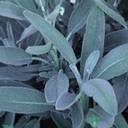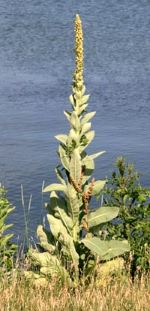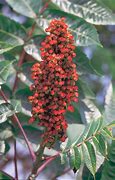
Home Healing Herbs
(Caution !!!)
It must be remembered that these plants are very valuable as medicines because of the great chemical powers they contain.
At the same time, these chemicals can be potentially dangerous if used in the wrong way.
Cherokee herbalists have great experience, and have gone through extensive training and observation.
Novice herbal practitioners are advised to seek out and develop a close relationship with Cherokee herbalists or their elders to learn how to use these medicines properly.
(Sage, Salvia spp)


One of the herbs known the longest time for soothing stomach problems is the blackberry.
Using a strong tea from the roots is helpful is reducing and soothing swollen tissues and joints.
An infusion from the leaves is also used as a tonic for stimulating the entire system.
A decoction from the roots, sweetened with sugar or honey, makes a syrup used for an expectorant. It is also healing for sore throats and gums.
The leaves can also be chewed fresh to soothe bleeding gums. The Cherokee historically use the tea for curing diarrhea.
(Mullein) Tobacco-like Plant

This is one of the oldest herbs, and some healers recommend inhaling the smoke from smoldering mullein roots and leaves to soothe asthma attacks and chest congestion.
The roots can be made into a warm decoction for soaking swollen feet or reducing swelling in joints. t also reduces swelling from inflammation and soothes painful, irritated tissue.
It is particularly useful to the mucous membranes. A tea can be made from the flowers for a mild sedative.
(Wild Ginger)

The Cherokee commonly recommend a mild tea of this herb, made from the rootstock which is a mild stimulant for the digestive system.
It can also help colic, intestinal gas, or the common upset stomach.
A strong, hot infusion of the roots can act as an expectorant in eliminating mucus from the lungs.
Fresh wild ginger may be substituted for the regular store-bought ginger roots as a spice for cooking.
(Sumac) Qua lo ga

All parts of the common sumac have a medicinal use.
Mild decoctions from the bark can be used as a gargle for sore throats, and may be taken for a remedy for diarrhea.
A tea from the leaves and berries also reduces fevers.
Fresh bruised leaves and ripe berries are made into a poultice which soothes poison ivy.
drink from the ripened or dried berries makes a pleasant beverage which is a good source of vitamin C.